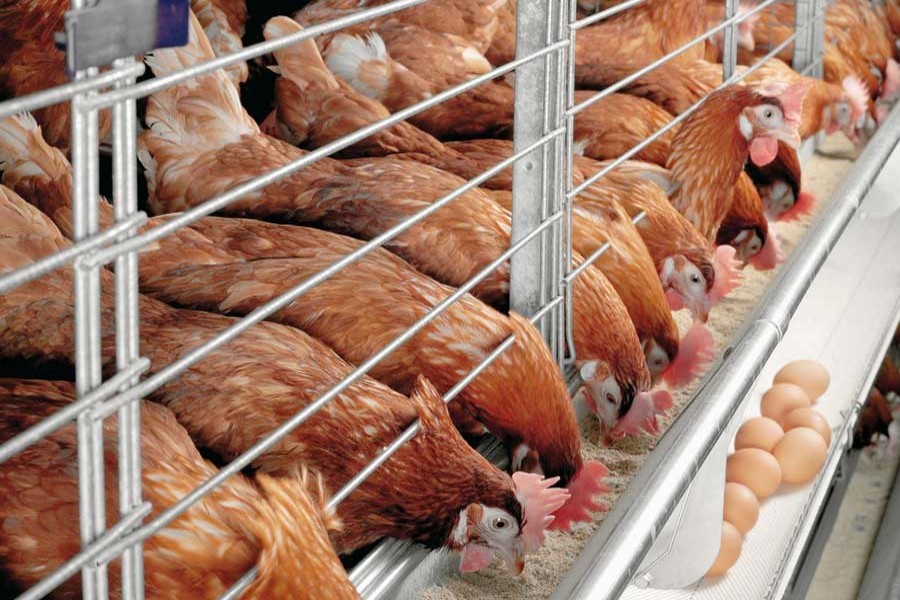
Published :
Updated :

The news that Bangladesh's poultry industry is set to step on global export market stirs up a mixed feeling. While it feels good as an instant reaction, it must not be forgotten that the task is quite demanding in that it does not depend so much on the prospect of exporting but more on how the international protocol regarding food products like poultry is going to be followed. No doubt, to start with, it is the hygiene and sanitary and phytosanitary requirements that come to mind. Besides, there are a number of critical steps that make up the export package which also must be maintained to be able to access potential markets in a sustainable manner. In this context, the issue of HACCP (hazard analysis at critical control points), applicable in respect of export of shrimp, may also figure as a precondition for export processing.
It has been learnt that the government in consultation with the industry is working on guidelines and amending the existing poultry policy to facilitate exports. This, among others, includes measures to fulfil protocols of the World Organisation for Animal Health (OIE) which will facilitate the local poultry industry to obtain international certificate for export. The onus is obviously on the Department of Livestock to prepare grounds in line with policy guidelines. The government, reportedly, is planning to declare some areas as "poultry industrial zones" for ensuring high bio-security and establishing world standard production procedures.
The country's poultry sector with an estimated investment of Tk 250 billion grew into prominence in a short time with mostly small entrepreneurs treading on this uncharted territory with no clear vision as to the fate it held for them in the years to come. Today, this sector is the second highest employment provider in the private arena, next only to the readymade garment industry. Endowed with its unique distinction of rural employment, mass migration of labour-common to most other sectors-has not happened to add to the population burden in urban areas. The industry claims that the country's poultry industry currently absorbs 20 per cent of the jobs. Its contribution to the gross domestic product (GDP) accounts for nearly 2.4 per cent. According to the Bangladesh Poultry Industries Coordination Committee's 2015 data, the local industry produces nearly 7.12 billion eggs, 574,629 tonnes of meat, 2.9 million tonnes of feed and Tk 33.30 billion worth of medicine annually. The question whether there is any exportable surplus is pertinent here, and to find it out there is the need for updated and authentic data on both production and local consumption.
Understandably, if avenues for export get eased with support from the government, chances are high that production for local consumption will also increase. Industry insiders are of the opinion that targeting markets in Myanmar, Malaysia, Middle-East and north-eastern states of India could be a good starter. The demand for halal meat, not only in the Muslim countries but also elsewhere, could serve as the key driver to motivate the industry people. It all depends how the industry is able to come to terms with the required internationally accepted practices.


 For all latest news, follow The Financial Express Google News channel.
For all latest news, follow The Financial Express Google News channel.